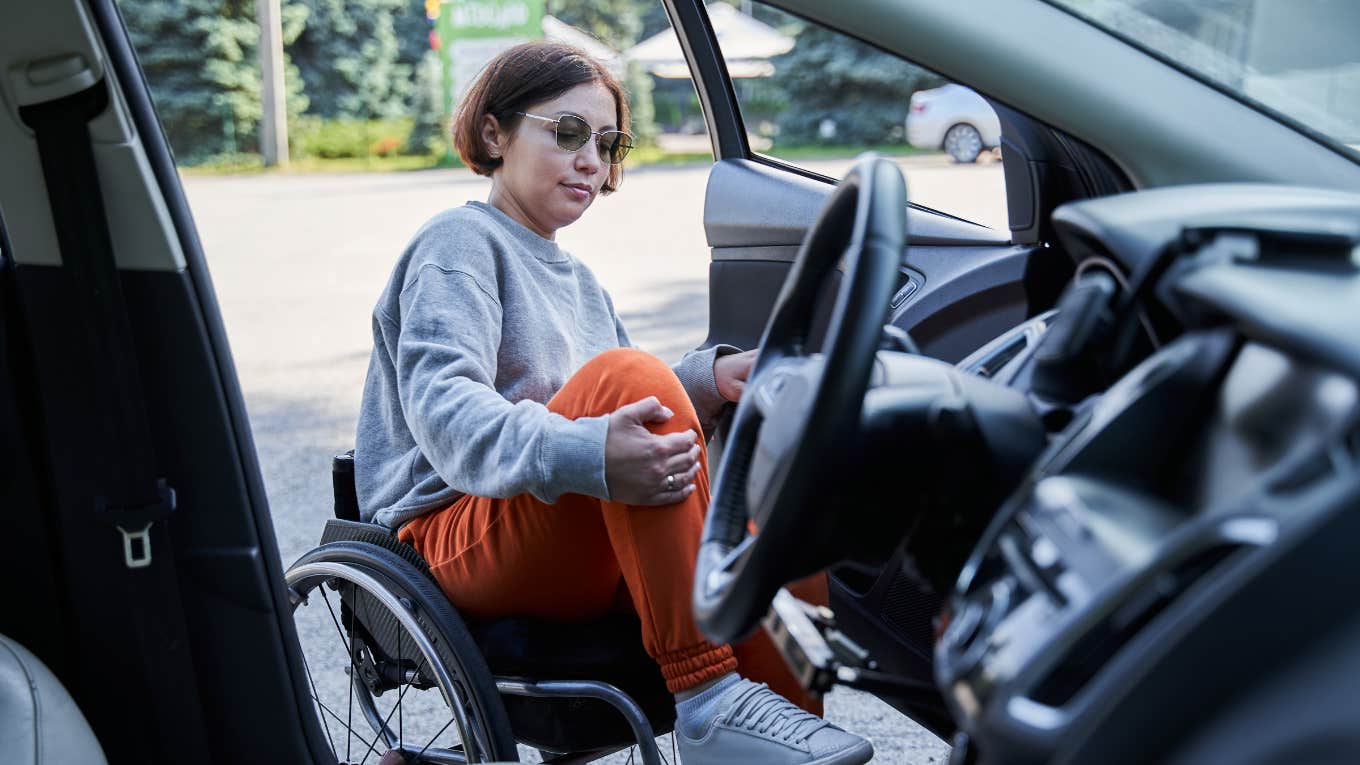Woman Told She Looks 'Too Young To Be Disabled' By Man Who Confronted Her For Parking In Handicapped Spot
Disabilities don't have any age requirement — any person of any age can be disabled.
 Olena Yakobchuk | Shutterstock
Olena Yakobchuk | Shutterstock After being confronted by an angry stranger for parking in a handicapped spot, Allison Lang, a Canadian content creator, was forced to prove she was disabled.
Lang, who makes empowering videos about living with a disability, claimed that she is sick and tired of people attempting to "compliment" her by implying that she shouldn't be disabled at her age.
She was told she looked 'too young to be disabled' by a man who confronted her for parking in a handicapped spot.
"I can't believe someone just did this to me," Lang incredulously said as she sat in her car directly after the incident.
She explained that she parked in the accessible section of a Walmart, and as she was hanging up her pass, a random middle-aged man came over to her parked car and tapped on the window.
"Through the glass, he's telling me, 'Miss, you can't park there; you can't use your grandma's pass and park in handicapped,'" she continued.
However, the pass was not Lang's grandmother's; without saying a word, she opened her car door and revealed her prosthetic leg. "Um, excuse me, sir, I have one leg," she said to the man.
His response? That he "didn't know" and that she looks "too young to be disabled," a sentiment that doesn't make sense because, as Lang pointed out, "not every disability is visible."
Disability doesn't have a set age and can affect anyone of any age, background, and physical appearance. To go up to someone and demand that they prove they're disabled is not only disrespectful but deeply hurtful.
Data shared by Statista in 2021 showed that while almost half the disabled population in America is over 75 years of age, almost 11% is aged between 21 and 64, 7.6% is aged between 12 and 20, and 5.8% is between 5 and 15.
Telling disabled people that they don't look 'disabled enough' isn't a compliment but incredibly hurtful.
Suggesting that someone doesn't look "old enough" or is "too pretty" to be disabled feeds into the already harmful stereotypes that disabled people have to live with and further isolates and invalidates their experiences.
It's a narrow-minded way of thinking that doesn't take into account how diverse people with disabilities are.
"Please stop saying it to disabled people," Lang urged. "Saying this implies that disability is a negative thing."
Lang pointed out that being told she's "too pretty to be disabled" always feels like a backhanded compliment — as if she's pretty, but it's wasted on the fact that she's disabled. Telling someone they're "too young to be disabled" also doesn't make sense, as there are people who were born with a disability, like Lang.
"Let's stop making disabled people feel as if they're not worthy because of their disability," Lang said. "You can be disabled and pretty, you can be disabled and young, you can be disabled and be an athlete. You can be anything with your disability."
The disabled community is one the largest marginalized communities in the world, and at any point in a person's life, they can become disabled. Disability doesn't have a singular look, and nor should disabled people be pigeonholed into the outdated ideas and stereotypes that are often imposed upon them. What may seem like a compliment is actually a microaggression that can be incredibly hurtful.
Nia Tipton is a Chicago-based entertainment, news, and lifestyle writer whose work delves into modern-day issues and experiences.

